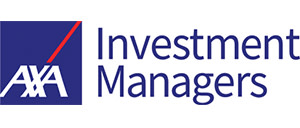Lead manager Jeremy Gleeson has more than two decades of experience investing in technology companies
While the fund has delivered higher returns than the broader technology sector over the longer term, it has struggled more recently due to the sharp rotation in investment styles
The fund could add diversification and boost the long-term growth potential of a more adventurous portfolio
This fund does not currently feature on our Wealth Shortlist of funds chosen by our analysts for their long-term performance potential
How it fits in a portfolio
Over the years we've witnessed the advancements in technology tap into almost every area of our lives. There is an abundance of companies across the globe, and it can be difficult to sift through the good and the bad. The AXA Framlington Global Technology fund invests in companies that research, design and develop technology across all sectors. These can be companies located in emerging markets as well as smaller companies, both of which can increase risk.
Investing in specialist areas, like technology, adds risk, and our analysis shows it's difficult for managers investing in these areas of the market to perform better than their benchmark through good stock picking over the longer term. We think specialist funds like this should usually only form a small part of a well-diversified investment portfolio.
Manager
Jeremy Gleeson has over two decades of experience investing in technology. He joined AXA Framlington in 2007 and has been the lead manager of the Global Technology fund ever since. He also manages the Digital Technology fund and is co-manager on the Robotics fund. These are run in a similar way and invest in some of the same companies. We think he can comfortably manage his commitment to each.
Gleeson can make use of wider resources at AXA Framlington, drawing support from other portfolio managers including Tom Riley, Stephen Kelly, Pauline Llandric and more recently Brad Reynolds.
Riley has worked closely with Gleeson for many years and specialises in industrials. Kelly has been running US funds for over 20 years and given that the sector makes up a large part of the US market, has a natural overlap in the technology space. He brings a more detailed focus on the economy and its outlook. Llandric focuses on some of the big names in the US too, but also spends some time looking at opportunities outside of the US, including China or Europe.
Reynolds is the latest addition to the team and joined in November 2022. Prior to this, he was a technology analyst at Polar Capital and boasts over 15 years' experience in the industry. He specialised in software and internet companies, so has been a welcome addition to the team.
With access to the wider resources at AXA Framlington, and a strong team surrounding him, we think Gleeson is well resourced to focus on the job in hand.
Process
Gleeson prefers to avoid higher-risk start-up or ‘blue sky' companies, as these are largely unprofitable and tend to disappoint in the early stages. Instead, focus is placed on investing in companies that are run by progressive, quality management teams, which have high potential growth and profitability prospects.
These types of companies can be found across the globe but as the technology sector makes up a large part of the US market, Gleeson tends to find more opportunities there. North America currently makes up just over 86% of the fund.
Gleeson believes that a lot of early-stage US technology companies are staying private for longer and benefit from the government's support. This means if a company decides to become public, it's from a position of greater strength and is likely more established than some other early-stage companies in Europe for example.
Over the last 12 months, Gleeson, with the help of the wider AXA Framlington team, had added exposure to Japan. Previously Gleeson had generally avoided Japan as he believed many companies act as conglomerates and he preferred a pure technology play. However, with an improving macro backdrop in Japan, Gleeson has decided to add Japanese companies, Nintendo, Sony and Advantest.
Gleeson also added South and Central America digital payments company Mercadolibre. Based on unique visitors and numbers of orders processed they have become the largest online e-commerce business in Latin America.
More recently Gleeson has decided to consolidate their China exposure to just Tencent, Alibaba and Trip.com. This means selling out of e-commerce business Meituan. Gleeson believes there are no clear signs of when the Chinese economy may begin to improve, and he has higher conviction in the remaining three names in the region. US payroll software company Paycom was also sold after strong performance.
Culture
The company was formed in the early 19th century. The name AXA was introduced in 1985 and they bought specialist investment manager Framlington in 2005. AXA's investment culture is based on proactivity and collaboration, with research shared across AXA's equity investment teams. They promote a strong focus on investors’ interests and ensure they align with those of fund managers. Managers are rewarded on performance, with a focus on the longer term, alongside client growth and increasing the fund size over time.
ESG integration
AXA has significantly improved its approach to Environmental, Social, and Governance (ESG) in recent years. The firm’s bolstered its team of ESG specialists with a significant number of new hires, split between a central team and the various investment teams.
The firm’s developed an internal research, analysis and rating database, which provides ESG information on thousands of companies. The system considers the ratings awarded by a variety of different providers, with the aim to arrive at a more balanced view. The scores can be challenged by portfolio managers and amendments will be considered by the ESG Monitoring and Engagement Committee following a period of analysis and discussion.
Companies with the lowest scores are excluded from AXA’s ESG integrated portfolios, as are tobacco producers, defence companies and violators of the UN Global Compact (around 90% of AUM). Companies involved in controversial weapons, palm oil (those that haven’t achieved ‘sustainable palm oil’ status), soft commodities, coal and tar sands are excluded from all AXA IM portfolios.
The firm provides a good level of transparency on their voting and engagement work, which includes an annual Stewardship report, and produces frequent responsible investment-related articles.
While this fund is not one of AXA’s ESG integrated funds, Gleeson does utilise AXA’s engagement team. This helps him understand why a company may have a low score and the risks that this will involve. Glesson also keeps an eye out for companies who are trying to improve their score but feels it’s more worrying if a company with a good score begins to deteriorate.
Cost
The standard annual ongoing charge for this fund is 0.82% a year. The HL platform fee of up to 0.45% per annum also applies.
Performance
Gleeson became lead manager of the Global Technology fund in July 2007 and over his tenure, the fund has returned 1052.06%* compared to the IA Technology & Telecoms sector average gain of 753.60%. Over this time, the fund has benefited from the tailwinds of investing in high-quality companies with above average earnings growth, also known as growth investing.
While his preferred style of investing has done well over this time, this doesn't mean it will continue. We saw evidence of this in 2022. These types of high-quality growth companies were hit hard by the sharp rotation away from growth investing.
Rapidly increasing inflation and interest rates have also impacted the fund. Rising supply and labour costs, alongside an increase in borrowing costs, are putting pressure on the share prices of some technology companies.
Gleeson believes that in a normal environment, where rates and inflation don't rise at such an aggressive pace, technology has the potential to hold up well. Varying forms of technology are needed globally, but they haven't been able to withstand the pace or intensity of the recent market pressures.
Over the last 12 months, the fund returned 26.40% versus a return of 29.11% for the average fund in the IA Technology & Telecoms sector. Past performance is not a guide to future returns, and you should consider this performance in the context of a longer-term horizon.
At a stock level, Meta (Facebook), after a disappointing 2022, was one of the best contributors to performance in 2023. Despite many businesses cutting back advertising spending, Meta have continued to gain market share in advertising on their core products. They have also brought down costs by decreasing the amount of people they employ and reigned in spending on the Metaverse, both have led to improved margins. Uber also performed strongly, they have proved that both the ride sharing business and food delivery business can overcome an economic slowdown and beat competitors.
In contrast a number of Gleeson’s companies in China performed poorly. This included shopping platform Meituan, E-commerce business Alibaba and video game company Tencent.
Annual percentage growth
Jan 19 - Jan 20 | Jan 20 - Jan 21 | Jan 21 - Jan 22 | Jan 22 - Jan 23 | Jan 23 - Jan 24 | |
|---|---|---|---|---|---|
AXA Framlington Global Technology | 33.64% | 42.17% | 4.83% | -12.23% | 26.40% |
IA Technology & Telecoms | 28.04% | 42.75% | 3.20% | -10.84% | 29.11% |


